Can My Dog Eat Pumpkin? Your Ultimate Guide…
October 17, 2024 | By David Jackson
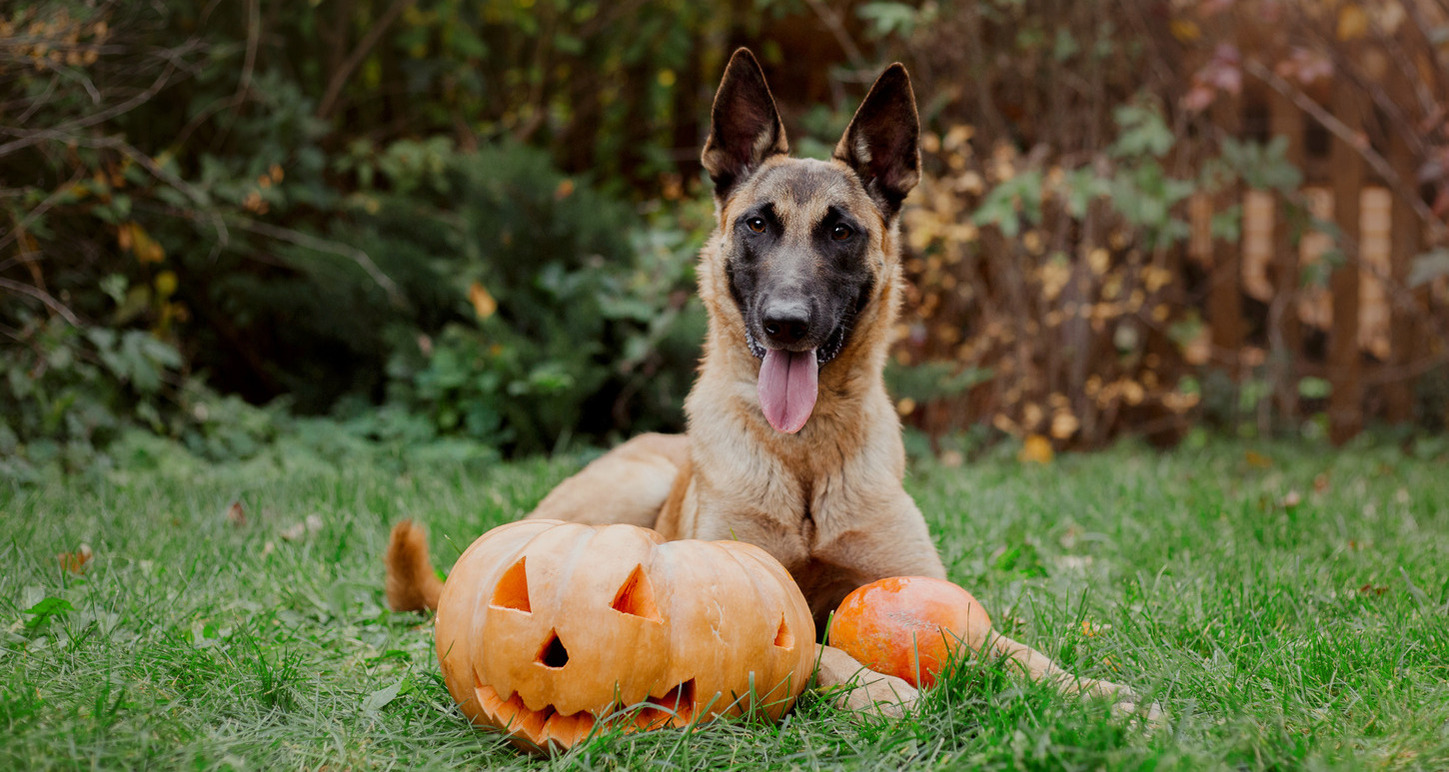
Autumn is well and truly underway. The leaves are turning, there’s a chill in the air when out walking your dog, and the supermarkets are switching out summer veg ranges for squashes, swede and heartier fair.
It’s also about this time that we see a surge in “can my dog eat…” questions coming into All About Dog Food, and lately pumpkin is at the top of that inquisitive list.
After all, we all know just how much our dog’s like to try foods they see us eat. And, with pumpkin sure to be a kitchen staple in many homes during the ber-months, it’s a question we’re only too happy to answer.
Table of Contents
Table of Contents
So, can dogs eat pumpkin? Yes, of course they can!
Pumpkin, and even pumpkin seeds, can be a healthy addition to your dog's diet when prepared and served correctly. You see, not only does it offer a variety of health benefits, but it can also help with common digestive issues.
However, as with any human foods you plan to feed to your four-legged friend, there are a couple of potential risks to be aware of. Here, we’ll explore the health benefits, different forms of pumpkin that are safe for dogs to eat, and tips on how to serve it, along with the precautions to keep in mind.
Health Benefits of Pumpkin for Dogs
 1. Rich in Nutrients
Pumpkin is packed with essential vitamins and minerals that are great for your dog.
It's particularly high in Vitamin A, which supports eye health, immune function, and skin health. It also has potassium, an important mineral that aids muscle function and helps regulate blood pressure.
You’ll even find other nutrients like Vitamin C, iron, and magnesium, which make pumpkin a nutrient-dense treat for your furry friend.
2. Skin and Coat Health
Adding pumpkin to your dog’s diet is all but guaranteed to give your dog’s skin and coat a brilliant boost. That’s because pumpkin flesh is rich in many a vitamin and mineral synonymous with a healthy coat and skin, like Vitamin A.
The seeds are also a great source of Omega-3 and Omega-6s. By adding a small amount of crushed up seeds to your dog’s diet, you can help reduce skin irritation, promote fur growth, and give your dog’s coat that glossy look.
3. High in Fibre
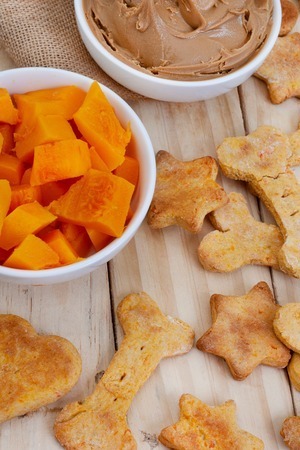 Pumpkin is packed with dietary fibre, which plays a crucial role in your dog’s digestive health.
It also helps regulate bowel movements, which can be beneficial for dogs suffering from diarrhoea or constipation, and help ease upset tummies.
In fact, pumpkin is often recommended by veterinarians as a remedy for digestive issues in dogs thanks to its high fibre content!
Additionally, the high fibre content of pumpkin promotes gut health by feeding beneficial bacteria in your dog’s digestive tract.
What’s more, fibre can help keep your pooch’s weight under control if they’re overweight, as it helps them fill up on a quality ingredient brimming with additional vitamins and minerals.
That said, it is possible to overfeed your dog on pumpkin, and while it can be a healthy treat, it still contains calories, so if using it for its high fibre content in a bid to help maintain your dog's weight, it's best to consult with your vet first to ensure you don't accidentally give them too much.
4. Natural Dewormer
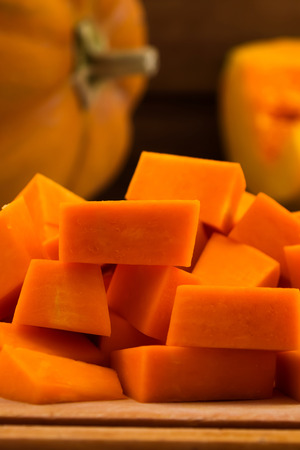 Yes, pumpkin seeds can act as a natural dewormer for dogs.
They have an amino acid called cucurbitin, which can paralyse parasites like tapeworms and roundworms, allowing them to be expelled from the body.
Feeding your dog ground pumpkin seeds in moderation can offer a safe, natural alternative to chemical dewormers.
5. Hydration and Urinary Health
Pumpkin is a deliciously hydrating treat due to its high-water content. In fact, it’s 94% water!
This high-water content combined with its natural nutrients supports urinary health which may reduce the risk of urinary tract infections and help with kidney health.
The Best Sources of Pumpkin for Your Dog
There are several forms of pumpkin that are safe for dogs, each with its own benefits, for instance:
Pumpkin Seeds
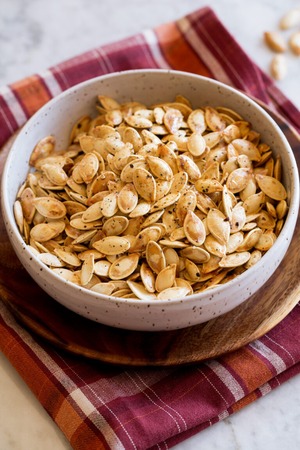 Unseasoned pumpkin seeds can be fed to your dog raw or roasted and ground into a powder to sprinkle on top of your dog’s regular meals.
It is not recommended you serve them whole as they are a potential choking hazard for your four-legged friend.
So, if you want to benefit from all those Omega fatty acids, pop them into a blender, pulse until powdered, then use as and when you need. It's not just an economical way to level up your dog’s diet but good for helping you cut food waste too!
Raw Pumpkin
Dogs can eat raw pumpkin in moderation, but it may be harder for them to digest. It's better to cook it to make it softer and easier to consume.
Cooked Pumpkin
Whether steamed or baked, cooked pumpkin is easily digestible for dogs and keeps most of its nutrients. Just remember to skip the seasonings and only serve when cooled completely.
Pumpkin Puree
Pumpkin puree is another great choice for your dog. You can pick up sugar free and fat free versions at most main supermarkets, but it’s even easier to make at home especially if you’ve some leftover pumpkin you need to use up.
As always, avoid seasoning or adding sugar to keep it safe and healthy for your dog.
Pumpkin Powders
If you like the thought of all the benefits of pumpkin for your dog, but you aren’t such a fan of eating it yourself, you can always choose a handy pack of pumpkin powder instead.
Just remember to read the ingredients list in full to ensure it’s free from any unnecessary extras.
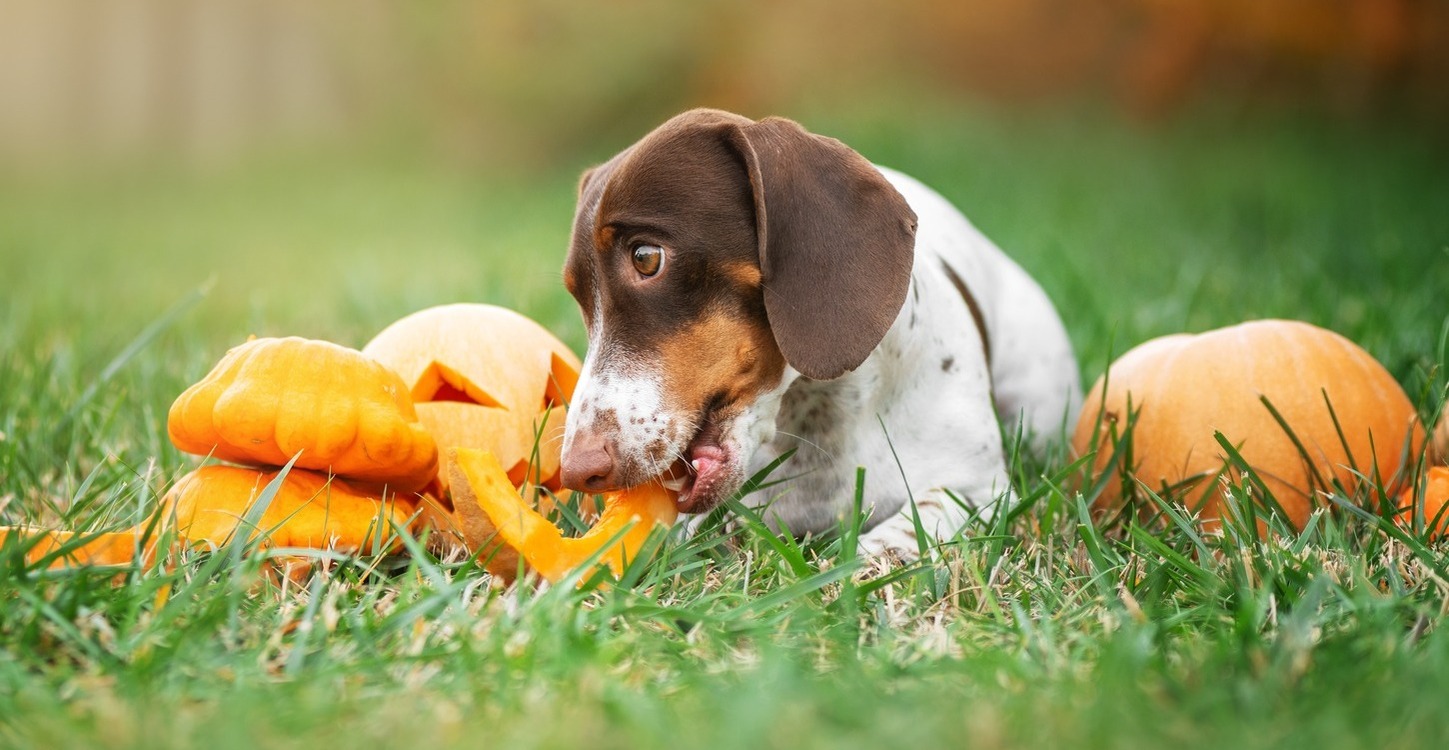
Pumpkin Precautions
While pumpkin is generally safe for dogs, there are a few things to consider before you serve it to your four-legged friend:
Choking Hazards
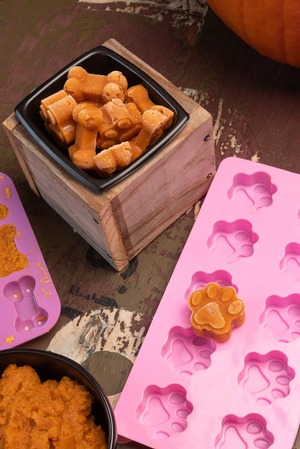 Whole pumpkin seeds or large chunks of pumpkin can pose a choking risk to your dog.
To reduce this risk it is important you grind the seeds into a powder and cut large pieces into smaller chunks.
Contamination
If feeding your dog fresh pumpkin, ensure that it is free from mould or rot before serving as this can cause gastrointestinal upset.
Overfeeding
Too much pumpkin can lead to an imbalance of nutrients in your dog’s diet, potentially causing loose stools or digestive issues. Start with small amounts and observe how your dog responds.
It’s also important to remember that your dog’s regular meals should already contain all necessary nutrients, so while feeding pumpkin occasionally would make for a nice treat, it is not an essential addition to your dog’s diet.
Allergies or Sensitivities
Some dogs may be allergic or sensitive to pumpkin. Introduce it slowly and stop if you notice any adverse reactions like vomiting, diarrhoea, or itching.
In Conclusion
Pumpkin can be a highly nutritious and beneficial treat for dogs when prepared and served properly. It supports digestive health, skin and coat maintenance, and even hydration.
However, it's important to be mindful of portion sizes and avoid potential risks like choking or overfeeding. It’s also not a necessary addition to your dog’s diet as they should receive all their required nutrients from their usual meals.
But, if you like the sound of the benefits adding pumpkin as to offer, start with small amounts and always consult with your vet if you’ve any queries, especially if your dog has any pre-existing health conditions.
Frequently Asked Questions
How much pumpkin can I give my dog?
A small amount, such as 1 to 4 tablespoons depending on your dog’s size, would be enough. Always introduce it slowly to your dog’s diet to avoid any digestive upset, and consult with your vet so you can make sure you're giving the right amount for their weight.
Can I give my dog pumpkin every day?
Yes, but it should be given in moderation as a supplement to a balanced diet.
While you can feed your dog pumpkin as a treat, your dog does not need to eat pumpkin as their regular food will have all necessary minerals and nutrients.
Can pumpkin have a laxative effect?
Yes, too much pumpkin can have a laxative effect on your dog. But in small amounts, pumpkin tends to normalise bowel movements rather than act as a laxative.
Related Blog Posts Section
More From Our Blog
|
Greenagribio •17 days ago
Pumpkin powder is a dehydrated, finely ground form of pumpkin, typically made from organic pumpkins. Unlike raw pumpkin, pumpkin powder bulk is easy to store and use, making it a convenient way to introduce the nutritional benefits of pumpkins into your pet’s diet. The powder is typically made from the flesh, seeds, and sometimes the skin of the pumpkin, all of which contain vital nutrients for your pet. https://www.greenagribio.com/product/pumpkin-powder-bulk-2